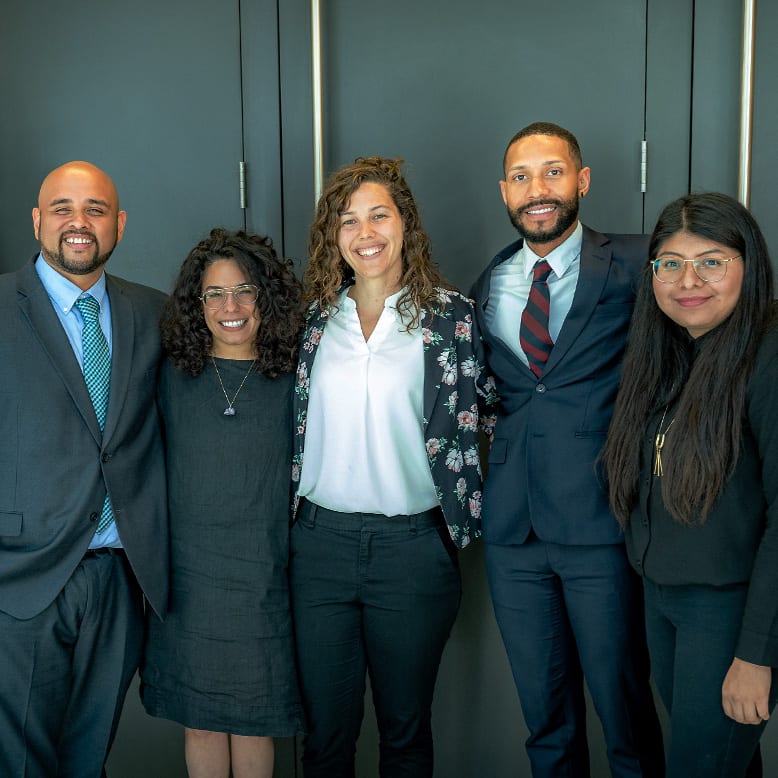Learning and honing the skills that effectively engage policymakers is at the heart of Health Policy Research Scholars.
The program teaches these skills—including translating research into solutions, blending data and storytelling, writing for policy audiences, and public speaking—through a combination of lectures, workshops, discussion groups, and reading and writing assignments. Eventually, though, classroom-style learning needs to be put into practice.
After two years, our scholars have the opportunity to put all the pieces together in our annual case competition. Designed as a simulated briefing for federal policymakers, the competition gives teams of scholars a chance to represent mock grassroots advocacy groups and present their case to a panel of judges—including Congressional staffers and leaders of national advocacy organizations—who play the part of Congressional representatives.
Each year, our teams take on a timely issue and build a case for evidence-based policies that advance health equity. In 2019, they addressed gun violence prevention.
Teams prepared for months, conducting research, meeting with stakeholders and advocacy groups, and crafting their arguments. Each team was paired with a policy expert who served as a dedicated coach, providing feedback and guidance on the assignment. Applying a health equity lens, each team developed a written policy brief and oral presentation to educate policymakers on the needs of their respective communities, and how federal gun violence prevention legislation could meet those needs.
The teams—representing diverse communities from California, Missouri, Tennessee, Florida, and New Mexico—approached gun violence from a variety of angles. Some advocated policy changes related to suicide prevention, domestic violence prevention, or child safety. Others focused on police violence and the militarization of police as a significant threat to public and community health. Others took a restorative approach, proposing youth-led and hospital-based intervention programs to end gun violence in communities.
Last year’s winning team—Aaron Coleman, Hannah Cory, Joseph Griffin, Samantha Perez, and Luisa Rivera—advocated for a stable, federal funding stream for hospital-based violence intervention programs designed to provide culturally relevant case management and clinical services to victims of gun violence. Focusing on community needs and cost savings, they won over the judges by showing how largely urban-centered programs could be adapted to rural communities to quell rising trends of suicide and interpersonal gun violence.
Each year, scholars tell us how invaluable this learning-by-doing is. As one scholar reflected:
There’s a big difference between learning something in a course and actually doing it. Before the testimony [course] last year, they told us, “Stories are important.” But I didn’t get it until I saw it. This case competition has cemented the things that we’ve been learning in the program so far.
This year, the design shifted from competition to collaboration. In this new “case experience” model, teams’ efforts are complementary, rather than competitive. For 2020, teams are focused on opioid use disorders, a public health issue that is ripe for policy intervention and real-world application of research.
Working on different aspects of the CARE Act of 2019—one of late Congressman Elijah E. Cummings’ (D-MD) signature bills to fight the opioid epidemic—the cohort developed a wide-ranging set of recommendations that, together, provide a powerful example of how legislation can better incorporate equity considerations.
This month, teams are presenting their recommendations to a mock Congressional committee as part of our Summer Institute, being held virtually due to the COVID-19 pandemic.
Photo caption: Our winning team for 2019: (left to right) Joseph Griffin, Luisa Rivera, Hannah Cory, Aaron Coleman, and Samantha Perez.

